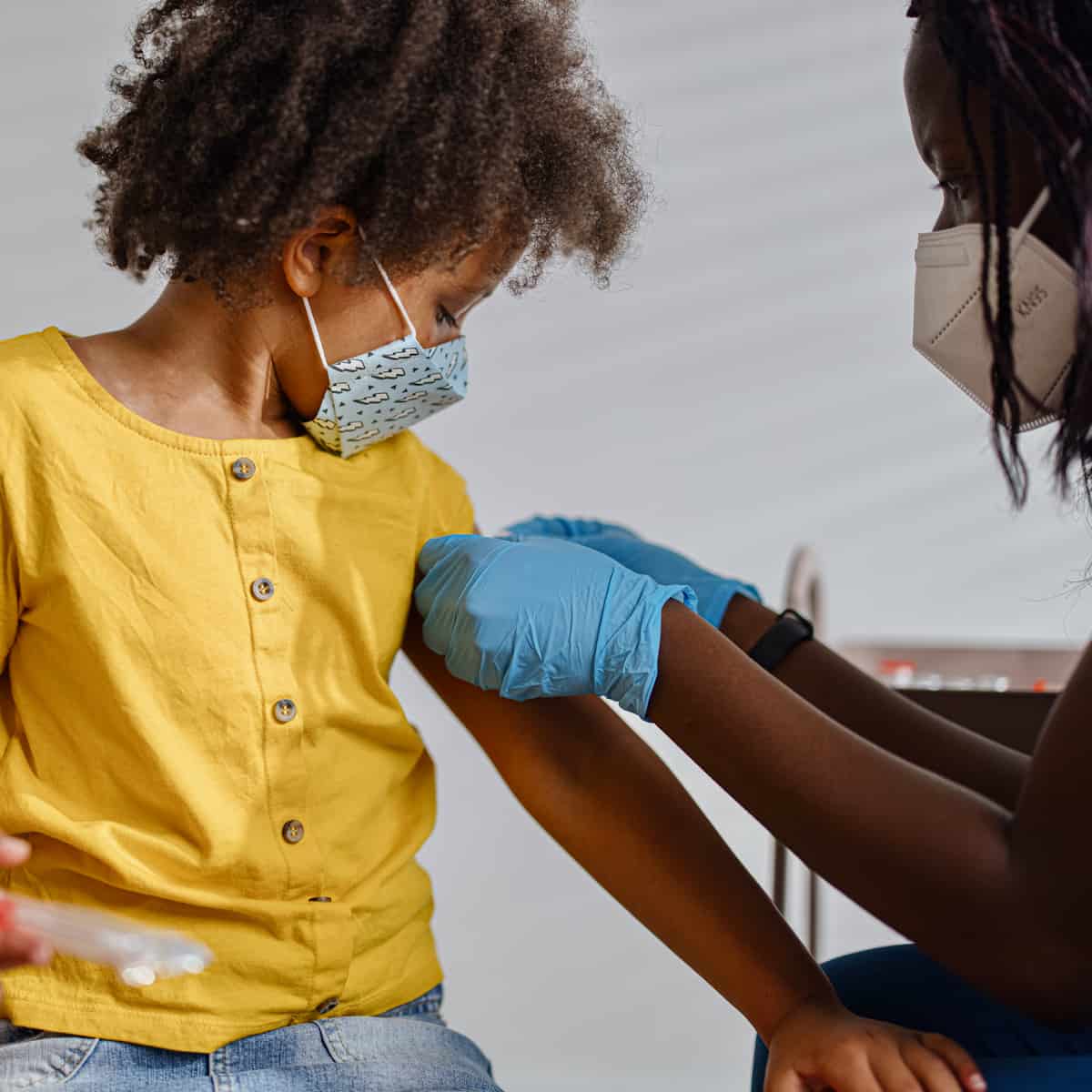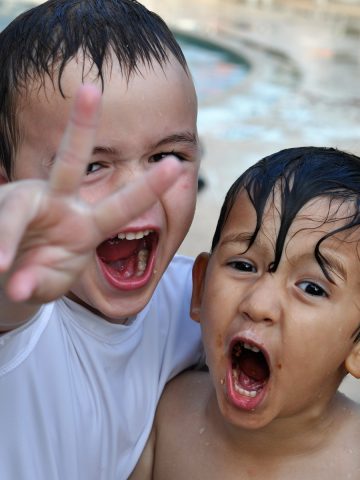From our sponsor, Children’s Memorial Hermann
Now that the Pfizer-BioNTech COVID-19 Vaccine has been approved for emergency use in children ages 5 to 11, you may have questions.
Here are answers from affiliated physician Dr. Peter Jung, MD, co-founder and head of Blue Fish Pediatrics at Memorial City, in association with Children’s Memorial Hermann, and a member of the Memorial Hermann Health System Physicians Council.
Jump to:
- Q. Why are eligible vaccine age groups divided as they are?
- Q. How did the testing of children proceed?
- Q. What are vaccine side effects for children?
- Q. Will the vaccine affect a child’s puberty or fertility?
- Q. Even after the positive studies, won’t some people still resist getting their children vaccinated?
- Q. How careful are our medical experts?
- Q. Do you plan to vaccinate your own children?
- Q. Until all age groups of children are vaccinated, what do you advise?

Q. Why are eligible vaccine age groups divided as they are?
A. Our immune system responds differently, depending on maturation and size. So vaccination testing was tiered, starting with older persons. Then researchers monitored side effects to determine the appropriate dose for each age group. Once vaccines were found to be safe for adults, clinical trials were launched for children.
Q. How did the testing of children proceed?
A. The first phase of a Pfizer vaccine study of 114 kids aged 5 to 11 focused on dosage, given the difference in sizes between most younger children and adults.
Children were divided into three groups. One got the same first dose as adults, which is 30 micrograms (mcg). The second got 20 mcg and the third 10 mcg.
“We wanted to see if we could give children a lower dose so we could minimize the risk of side effects without lowering efficacy,” Dr. Jung says.
The lower dose worked, so later phases of the study gave 10 mcg to 2,268 kids aged 5 to 11. “A two-month follow-up showed the vaccine was very safe, immunity and antibody responses were excellent and there were no serious adverse events.”
Q. What are vaccine side effects for children?
A. “So far there have been no major adverse events,” Dr. Jung says. “There have been some concerns about myocarditis—inflammation of the heart muscle—among teenagers, so that’s being closely monitored. No cases of myocarditis have been shown in the limited data that has been published thus far.”
Q. Will the vaccine affect a child’s puberty or fertility?
A. No. “Biologically that would be implausible and there has been no safety signal indicating that it could happen,” he says.
A year of data on adults has shown no harm to fertility and pregnancy. Many women have become pregnant and delivered healthy babies. As for teens, there have been zero signs that menstrual cycles or fertility are harmed.
Q. Even after the positive studies, won’t some people still resist getting their children vaccinated?
A. Some parents are waiting for a large group of children to get the vaccine first before they commit to a vaccine for their child. “We’ve already given out nearly 400 million doses nationwide to people of all ages,” Dr. Jung says.
And nearly half (48 percent) of parents of vaccine-eligible children ages 12 to 17 now say their child has received at least one dose of a COVID-19 vaccine.
Q. How careful are our medical experts?
A.The FDA and CDC are being careful to ensure the public will have the highest confidence in the COVID-19 vaccine, so we can protect the greatest number of children and people possible,” Dr. Jung says. “The benefits of the vaccine make it all the more important to get it, especially during a global pandemic.”
Q. Do you plan to vaccinate your own children?
A. Dr. Jung's three teenage children were vaccinated as soon as they qualified. "If I had younger children I also would get them vaccinated as soon as their age group is approved," he says. "The risk benefit ratio is clear to me as a pediatrician: Vaccinating my children expediently was the safest thing for their wellbeing and for the good of society."
Q. Until all age groups of children are vaccinated, what do you advise?
A. Until vaccines are widely distributed to children, parents can take measures to be careful and reduce risks, Dr. Jung says.
These include encouraging masks and avoiding crowded indoor spaces. “As more vaccines get rolled out there’s a light at the end of the tunnel,” he says. “But it’s important to stay safe until vaccines are readily available for everyone and ensure that children cross the finish line with their families, safe and healthy.”
For more information about the COVID-19 vaccine for children, visit memorialhermann.org/covid-vaccine-children





Leave a Reply